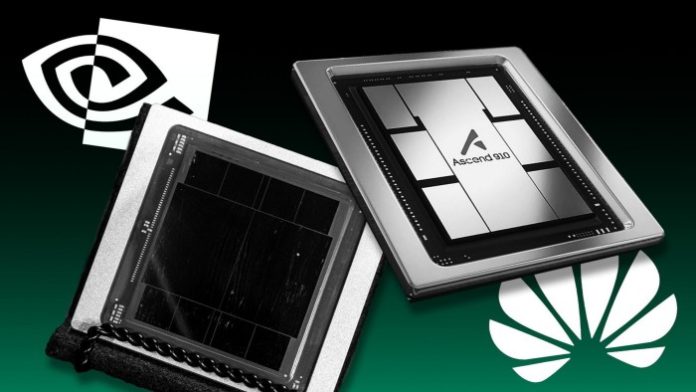Huawei is looking to increase its share of the Chinese artificial intelligence chip market currently dominated by Nvidia by assisting local companies in adopting their rival silicon for “inference” tasks.
Major AI firms in China currently use Nvidia’s GPUs to train large language models, with the US chipmaker’s products considered essential for technology development.
Instead of directly competing with Nvidia in training, Huawei is positioning its latest Ascend AI processors as the preferred hardware for Chinese companies focusing on “inference” tasks.
The company believes that as model training slows down and AI applications like chatbots become more prevalent, the demand for inference will increase.
According to Huawei employees and Ascend customers, the company is focusing on making AI models trained on Nvidia products compatible with Ascend chips, which operate on different software.
With support from the Chinese government, Huawei is encouraging local tech giants to use more of their AI chips and move away from Nvidia.
Huawei is seen as a serious competitor to Nvidia in China, with advanced chip design capabilities, according to sources familiar with Nvidia’s operations in the country.
While Ascend chips are performing well individually, there are technical challenges in how they interact within a cluster of AI chips during model training, limiting their ability to replace Nvidia for training purposes.
Huawei is also working on addressing the challenge of convincing developers to switch from Nvidia’s Cuda software to Ascend.
Analysts predict that the upcoming Ascend 910C chip from Huawei will address these concerns and improve software accessibility for developers.
Other players in the AI chip market include Baidu and Cambricon in China, along with Amazon and Microsoft in the US.
Industry estimates suggest that Huawei is catching up with Nvidia in China, with its Ascend chips gaining traction.




